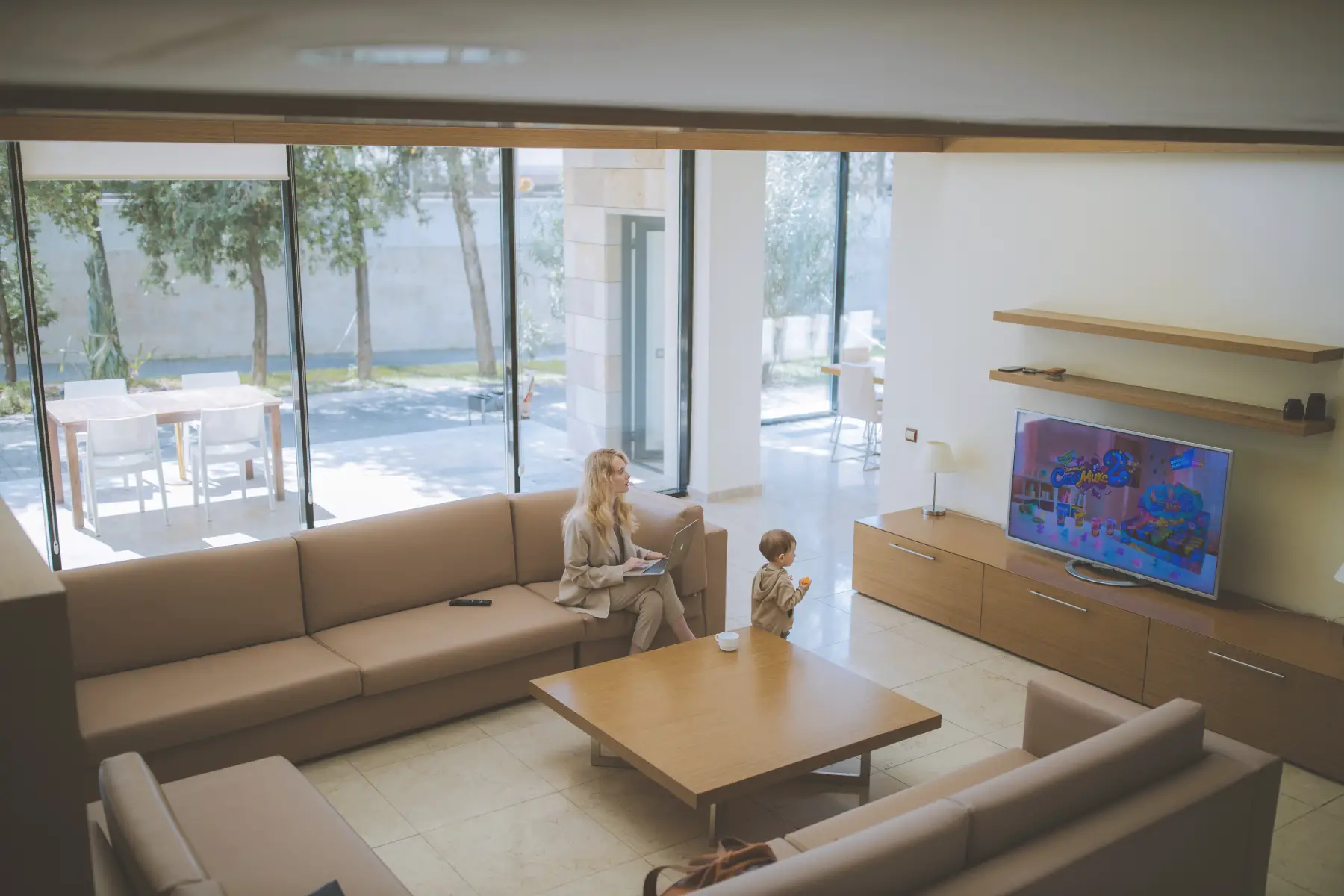An essential part of living in Portugal is staying informed about what is happening around you. While most news sources in the country are in Portuguese, you’ll find a handful of newspapers and websites in English and a radio station catering to expats.
Some cover general news, while others focus on specific topics, such as lifestyle, entertainment, or travel. Being aware of these sources will help you keep up with current events and give you insight into Portuguese culture and society.
To ensure you stay up-to-date, explore this overview of Portugal’s diverse news landscape, which covers the following topics:
- The media in Portugal
- Where to get the news in English in Portugal
- Newspapers and magazines in Portugal
- TV and radio news channels in Portugal
- News websites in Portugal
- Social media news sources in Portugal
- Alternative news and citizen journalism in Portugal
- News sources to avoid in Portugal
- Tips on getting reliable news in Portugal
- Useful resources
Ground News
Get every side of the story with Ground News, the biggest source for breaking news around the world. This news aggregator lets you compare reporting on the same stories. Use data-driven media bias ratings to uncover political leanings and get the full picture. Stay informed on stories that matter with Ground News.
The media in Portugal
Portugal has a history of media censorship. Between 1926 and 1974, the country was under a dictatorship that closely examined everything said about the state, especially in the press. Editors used a blue pencil (lápis azul) to cross out anything deemed unacceptable to share with readers. That was until the Carnation Revolution in 1974, which took down the government and slowly put a stop to these censorship rules.
These days, the country’s media offers a variety of political and cultural standpoints. Several national news platforms cover nationwide events, while smaller regional outlets focus on what’s happening locally. Most people in Portugal get their news online, through social media or TV. The Rádio e Televisão de Portugal (RTP) is the only TV and radio network governed by the state. All the others are privately owned. Similarly, most newspapers and magazines have their shareholders.

The Portuguese Regulatory Authority for the Media (Entidade Reguladora para a Comunicação Social, ERC) regulates the country’s news sources following the Portuguese Constitution.
Considering its history, Portugal is relatively open to journalistic freedom. Indeed, the country ranks among the top 10 in the 2024 World Press Freedom Index published by Reporters Without Borders. About 58% of the adult population in Portugal trust their news sources. That said, there are ways to fact-check data with tools like Polígrafo (in Portuguese).
Where to get the news in English in Portugal
English-language newspapers
You can find renowned international newspapers at Portuguese airports and large newsagents, especially in big cities and popular tourist areas like the Algarve. These include The Guardian, The International New York Times, and the Financial Times.
If you’re looking for English-language papers focused on Portugal, however, the market is pretty small. Below are the only two titles available in print:
- The Portugal News: Established in 1977, this is the longest-running English-language newspaper in Portugal, reaching 400,000 people a week. It comes out every Friday in print but is also available online. Beyond English, they offer online news in 20 languages, which you can select on their website.
- Portugal Resident: Founded in 1989, this tabloid newspaper is mainly directed at English speakers in the Algarve, but you can also find it in newsagents across the country. It covers many topics, including sports, business, lifestyle, and real estate. The paper is part of the Open Media Group, which publishes many English-language magazines in Portugal, like Essential Algarve and Essential Madeira.
These papers are usually available in hotels or local cafés for free, but you can also purchase them in most newsagents, especially those selling international press.
English-language news TV stations
While it’s possible to watch films and TV shows in English in Portugal, it’s rare to find Portuguese news stations that broadcast in English. However, many TV packages will include access to international news channels such as BBC World News, CNN, or Euronews. Occasionally, you can find English segments in the national news with Portuguese subtitles.
Kiss FM is the only English-language radio station in Portugal. Established in 1992, it caters mainly to the expat community living in the Algarve. Of course, you can always tune in to international news stations online by using services like radio.net.
English-language news websites and social media
Printed newspapers are a rare sight these days, as most people get their news online or through social media. If you’re an expat in Portugal, there are a handful of English-language news websites where you can get the latest updates if your Portuguese is not yet on point. These include the online versions of The Portugal News and Portugal Resident and the following websites:
- Algarve Daily News: This online news platform focuses mainly on events around the Algarve region. It also has a section for real estate and features on world affairs.
- Euronews Portugal: The Portuguese section of the Euronews website offers updates about the country in English.
- Lusa News: The Portuguese news agency Agência Lusa has an English-language section called Lusa News.
- Portugal Pulse: This publication provides news and cultural insights about Portugal based on information collected from local newspapers and online sources. Beyond covering current events, it also tackles topics such as real estate and has regional news sections for Lisbon, Porto, the Algarve, Madeira, and the Azores.
Newspapers and magazines in Portugal
There are more than a dozen national newspapers in Portugal. However, these publications are less renowned worldwide than in many other European countries.
Apart from the official political party media outlets, Portuguese media has relatively low political polarization. Most papers are centrist or center-left, perhaps due to the country’s past far-right rule.

The Agência Lusa is the largest news agency in Portugal. Half of its stocks are run by the state. The rest belong to private media shareholders who own the country’s national newspapers, magazines, and TV stations.
National Portuguese newspapers
According to the Associação Portuguesa para o Controlo de Tiragem e Circulação (APTC), the official body responsible for tracking newspapers and magazines circulation in Portugal, these are the most widely read Portuguese papers:
- Correio da Manhã: This daily tabloid is one of the highest-circulated newspapers in Portugal, with 36,396 physical copies sold in the final quarter of 2023. It’s famous for its attention-grabbing headlines, often covering scandals.
- Expresso: This weekly newspaper is published in Berliner format. It is among the best-selling newspapers in Portugal, with a circulation of 37,868 copies in print and 49,817 online in the final quarter of 2023. It is known for its in-depth reporting.
- Jornal de Notícias: Founded in Porto in 1888, this is one of the oldest newspapers in Portugal. Between October and December 2023, it had a circulation of 18,132 printed copies.
- Público: Based in Lisbon, this daily tabloid newspaper was one of the first mainstream newspapers to have an online edition. It now has a circulation of over 48,000 copies.
Regional and local newspapers
Alongside the national papers, you’ll find many more Portuguese regional newspapers that focus on events around specific regions. The most well-known titles from north to south include:
- Açoriano Oriental: the oldest Portuguese newspaper (founded in 1835) still in circulation covering news in the Azorean archipelago
- Diário do Alentejo: publishes news about the Alentejo, Portugal’s largest region
- Diário de Aveiro: focuses on Aveiro and its surroundings
- Diário de Coimbra: covers the Coimbra region
- Diário de Notícias da Madeira: serves the Madeira archipelago
- Jornal do Algarve: covers the southern region of the Algarve
- O Minho: based around Braga
In the digital media landscape, nearly a quarter of publications are based in Lisbon, followed by Porto and Braga, the country’s biggest cities. However, the government has pledged to support more regional and local press.
Weekly or periodical newspapers or magazines
There is a range of magazines in Portugal offering general information on current events, including politics and entertainment. Among the most famous titles are:
- Notícias Magazine: This weekly supplement comes with the Sunday edition of Jornal de Notícias. It covers lifestyle, human interest stories, and cultural features.
- Sábado: This weekly magazine focuses on investigative journalism with features on politics, science, and entertainment.
- Selecções: The Portuguese version of Reader’s Digest is published monthly and provides similar content to its international counterparts, covering topics like politics, culture, science, health, travel, history, and art.
- Time Out: This monthly magazine covers cultural happenings around Portugal, including restaurant openings, events, and day trips. There is also Time Out Lisboa, which focuses on what’s happening in the capital.
- Visão: This weekly news magazine covers a variety of subjects around current events, society, culture, and lifestyle.
Specialist newspapers
If you’re looking for information on a specific topic, there are several Portuguese specialist publications out there. Some of the most popular segments are:
- Cars: Carros & Motores, Turbo
- Economy: Exame
- Food & Wine: Continente Magazine, Revista de Vinhos
- Lifestyle: Maria, Caras, Nova Gente, Activa
- History & Science: National Geographic Portugal
- Music: Blitz
- Sports: Record, O Jogo, A Bola
- Travel: Volta ao Mundo
TV and radio news channels in Portugal
National Portuguese TV and radio news
More than a hundred channels are available on Portuguese cable TV, but only a few of them cover the news. These include the following:
- Canal Parlamento: Also known as ARTV, this is a legislative television station. It primarily broadcasts events and news from the Portuguese Assembly.
- CNN Portugal: Previously known as TVI24, this channel was launched in Portugal in November 2021. It includes several news segments, interviews, and deep reports.
- Correio da Manhã TV: As the name suggests, this channel is linked to the Correio da Manhã newspaper. It’s often considered a sensationalist station.
- Rádio e Televisão de Portugal (RTP): RTP is the only public television broadcaster in Portugal. They operate several channels, including regional stations such as RTP Madeira, RTP Açores, and RTP África, plus one directed at Portuguese people living abroad – RTP Internacional. These channels offer daily news segments, but if you’re looking for round-the-clock coverage, you can watch RTP3.
- Sociedade Independente de Comunicação (SIC): This private television network offers two daily news segments, one in the morning and one in the evening. For regular updates, you can also check SIC Notícias.
- Televisão Independente (TVI): Similar to SIC, this channel focuses mainly on entertainment, but it also offers news coverage, which is broadcast between shows around 13:00 and 20:00.
The Portuguese radio also broadcasts news. RTP owns the public radio stations Antena 1, Antena 2, and Antena 3, all of which provide some coverage of current affairs, cultural topics, and sports. Other private stations with news segments include:
Regional or local TV and radio news
In addition to the general news channels, you can access specialist TV and radio stations focusing on specific interests. Sport TV, for example, provides sports news, while Golo FM mostly focuses on soccer. Channels like Canal180 concentrate on cultural topics.
News websites in Portugal
Like many countries, Portugal has experienced a shift towards digital media consumption. Indeed, more than 70% of residents got their news online in 2023. When looking for digital news in Portugal, most people still turn to the official websites of national newspapers. Expresso leads the way with 47,450 digital subscribers, followed by Público (46,560) and Correio da Manhã (23,932).
Most articles are free to access, but some require a monthly subscription. However, the Portuguese are reluctant to spend money on news, with only 11% of consumers paying for digital information, one of the lowest rates in Europe.

Beyond the mainstream newspapers, there are other online-only news platforms and websites run by Portuguese TV news channels. Below is a list of the most famous sources:
Social media news sources in Portugal
More than 95% of Portuguese people use social media at least once a day. YouTube and Facebook are the most popular networks in the country, with 7.43 million and 5.9 million users, respectively.
While many people still get their news from TV, online news and social media are quickly gaining traction as the top news source, especially among younger generations. Indeed, 50% of the population got their news from social media in 2023. Despite this, 37.1% have reported finding disinformative content on these platforms several times per day.
The most popular apps for sharing news in Portugal are Facebook (40%), WhatsApp (24%) and YouTube (23%). However, Instagram and TikTok have been increasingly popular for news in recent years.
Alternative news and citizen journalism in Portugal
Alternative news companies still represent a small portion of the media in Portugal. Large outlets are usually the leading news source, but smaller publications are slowly emerging in the country, many of which allow for citizen journalism.
In 2020, Portuguese journalist Mário Rui André, co-founder of the independent magazine Shifter, created the platform Media Alternativos to highlight alternative media projects in Portugal. Among the most popular are:
- Divergente: Part of the cooperative Bagabaga Studios, Divergente is an investigative journalism publication that favors narrative formats, focusing on a mix of media.
- Fumaça: Owned by the non-profit association Verdes Memórias, Fumaça started as a podcast in 2016, but it now works as a complete media outlet focusing on subjects like social progress and human rights, largely funded by journalism grants and donations.
- Gerador: This magazine and online platform covers cultural education in Portugal.
- Jornal Mapa: Released every three months, Mapa aims to stimulate debate and understanding of the world.
- Shifter: This digital and physical magazine discusses technology, society, and culture news.
While Portugal has had a few satirical newspapers over the years, only a few remain active today. Inimigo Público is the only surviving printed satirical news supplement in the country. The segment was originally part of the newspaper Público but was purchased by Expresso in 2021, who also run the online format. Another popular satirical website is Imprensa Falsa.
News sources to avoid in Portugal
Fake news is increasingly seeping into Portuguese media. In a report by the Iberian Digital Media Research and Fact-Checking Hub (IBERIFIER), 58.8% of Portuguese media editors admitted that their outlet had disseminated disinformation on social networks.
To help combat this phenomenon, some local newspapers and websites have started introducing fact-checking features. This includes Público’s A Prova dos Factos and Observador’s Fact Check. Observador has also partnered with the TV network TVI, which runs the fact-checking program A Hora da Verdade. In addition to these is Polígrafo, a national fact-checking project that analyses key individuals in Portuguese news and their statements. The website is updated daily, and the segment is broadcast weekly on TV in the SIC channel.
According to the 2023 Digital News Report, issued by Reuters, 58% of Portuguese people trust their news sources. Indeed, most brands are well-trusted, with the exception of the mainstream outlet Correio da Manhã, which is often considered a sensationalist tabloid. That said, fake news tends to come from social media platforms like Facebook or Instagram. A few pages that have been called out for spreading disinformation in the past include Bombeiros 24 and Notícias Viriato.
Tips on getting reliable news in Portugal
There are some resources out there specifically designed to help you assess news articles and sources for accuracy, bias, and reliability. Some of the services operating in Portugal include:
The key to stopping the spread of misinformation is learning how to spot it. Here are some top tips from the experts:
- Read the news in various outlets to gain a more balanced perspective of the events.
- Be cautious of information shared solely on social media without credible sources.
- Choose sources known for consistent and accurate reporting, avoiding outlets prone to sensationalism.
- Check IBERIFIER and the European Digital Media Observatory (EDMO) for reports on disinformation and media literacy resources.
Useful resources
- Capas Jornais – overview of the front pages of Portuguese newspapers and magazines
- Entidade Reguladora para a Comunicação Social (ERC) – the Portuguese media regulatory authority
- European Digital Media Observatory – an EU-funded project that analyses disinformation and media literacy around Europe
- IBERIFIER – a digital media observatory that assesses misinformation in Portuguese and Spanish media
- Media Bias/Fact Check – Portugal’s government and media profile (behind a paywall, but it’s possible to view media source profiles for free)
- Polígrafo (in Portuguese) – a fact-checking project that scrutinizes the various protagonists of news stories in Portugal







